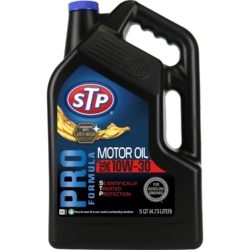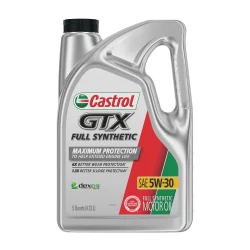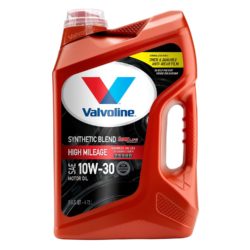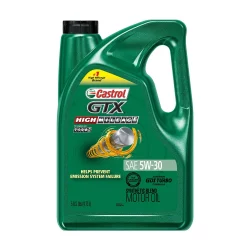Again, there are various types of motor oil, and each one comes with a set of properties that can enhance the use of your car. Understanding the purpose of motor oil can explain why one type may be better than another for your vehicle.
Motor oil moves throughout your engine to cool and lubricate the various parts that run it. Good quality motor oil can suspend harmful chemicals and prevent damage to your car’s engine. For that reason, it’s crucial to find the right motor oil for your vehicle. Also, educating yourself about the various types of oils for cars can help you narrow down the choices.
TYPES OF MOTOR OIL
CONVENTIONAL MOTOR OIL
Conventional oil is a refined version of base or crude oil. This oil has been cleared of many of its impurities and has additives to reduce sludge, prevent corrosion, and enhance lubrication. It typically has fewer additives than synthetic oil since it is not manufactured, making it less expensive. Conventional oil generally is for drivers who have normal driving patterns.
FULL SYNTHETIC MOTOR OIL
While conventional oil is made from crude oil, full synthetic oil is manufactured. It is extensively refined and removes many impurities found in conventional oil. Synthetic motor oil also includes a variety of additives that help improve the oil’s performance to sufficiently clean and lubricate the engine. Synthetic motor oil is ideal for drivers who use their cars in a way that puts stress on the engine. For example, a pickup truck that tows cars or someone who frequently drives on dirt roads may need full synthetic motor oil. Also, because of the process for creating full synthetic motor oil, these types of motor oil are more expensive.
SYNTHETIC BLEND MOTOR OIL
Synthetic blend motor oil is a mixture of full synthetic oil and conventional oil. It typically doesn’t have more than 30% of synthetic oil, but it includes additives that allow it to offer additional protection to engines by decreasing the chances of oil evaporation. One of the most beneficial aspects of this oil category is that it’s typically much cheaper than full synthetic oil. You get some of the benefits of synthetic oil without the hefty price.
HIGH MILEAGE MOTOR OIL
If you have a vehicle with 75,000 miles or more on the odometer, high mileage motor oil will likely be your best bet. This type of oil has additives that decrease internal and external leaks. The oil does this by causing o-rings and gaskets to inflate, reducing leakage. Additionally, the formula can also reduce sludge in the engine. Conventional, synthetic, and synthetic-blend oils can be formulated to become high mileage motor oil.
What Type of Oil Should You Use for Your Car?
Determining the type of oil your car needs doesn’t have to be a challenging process. Here are some ways to assess the types of motor oil you should use for your car:
- Consult your owner’s manual. – Your car’s owner manual will recommend oil for your vehicle, so be sure to check it before purchasing.
- Check to see if it’s been tested. – Ensure that you select an oil that the American Petroleum Institute has tested. The oil will have a star symbol somewhere on the container to indicate it.
- Is your mileage over 75,000 miles? – Due to wear and tear on your engine, it’s more likely to leak. In that event, a high-mileage oil — formulated from conventional, synthetic, or conventional blend — may be the ideal type of oil for your car.
- What’s the weather like in your area? – If you live in a colder climate, you want to invest in a thinner oil since motor oil thickens in colder climates. Additionally, a thicker oil with more additives may be necessary for a warmer climate since oil thins in warmer weather. Pay attention to the grades, as a lower number in front of the “W” on an oil product means that it is a thicker viscosity.
- What is your driving pattern? - If you frequently drive in start-and-stop traffic or navigate dirt roads, your engine may need more lubrication, meaning that a synthetic oil product could be better. If most of your drives consist of navigating over paved roads and longer uninterrupted drives, the conventional oil or synthetic blend may be your best bet.
Source: https://www.autozone.com/diy/motor-oil/different-types-of-motor-oil











